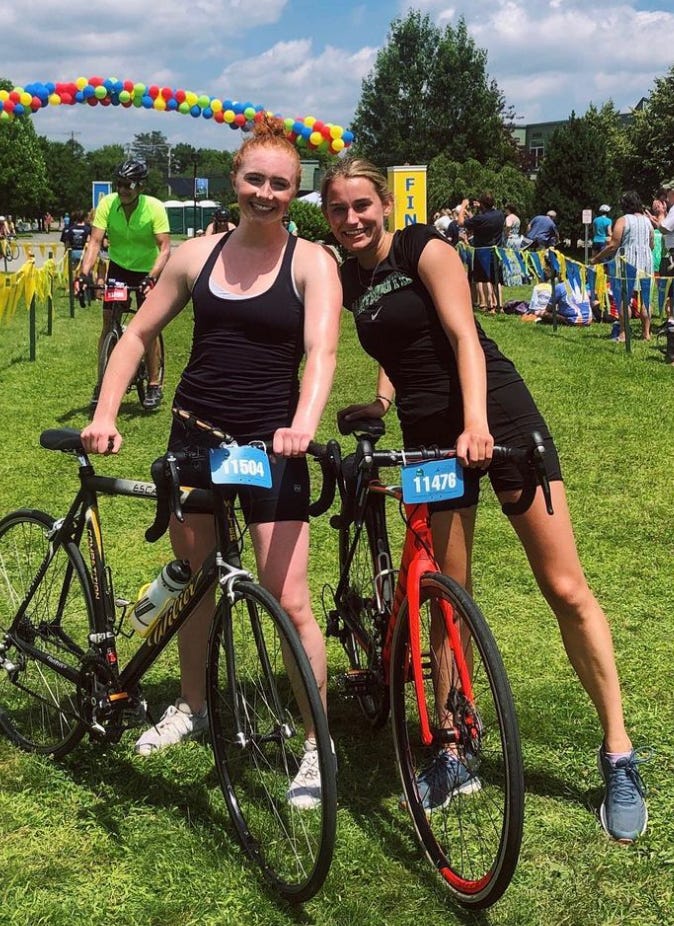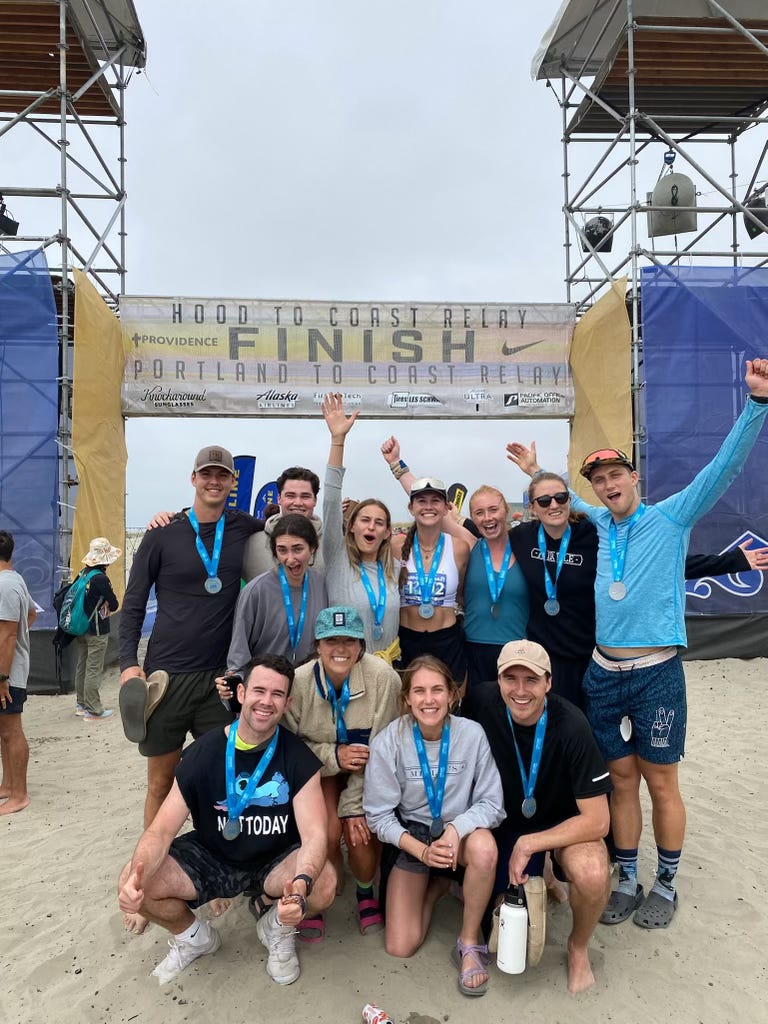Dartmouth and Doing Hard Things
How Dartmouth turned my sister into an extreme hiker, encouraged my friends to learn to ski, and the personal and relationship benefits that come with tackling these physical challenges

When my sister Ella was little, and my brothers and I attended her Pee Wee soccer games, she would often run off the field to sit with us on our blanket and eat our snacks.
“Ella!” The coach would call. “Get back on the field! You’re the last defender, and the ball is headed our way.”
Ella would gather grapes in her hands to eat on the field and amble back to her spot by the goal. When she had finished snacking, she’d often search for dandelions to pick.
This summer, Ella hiked 54 miles as part of the Dartmouth 50. It was her idea. She had organized the team. When one of her hiking mates started hallucinating out of exhaustion, Ella helped her finish.
I’d be shocked at the contrast between Ella the Pee Wee Soccer Player and Ella the Leader of Endurance, Overnight Hikes, but I’m not because I also went to Dartmouth.
There are so many incredible things about Dartmouth College that are highlighted in admissions brochures, Fiske guides, and Reddit threads. But to me, the most amazing thing about Dartmouth that is never discussed is how the community normalizes and encourages doing hard things.
Physical feat is the entry gate into the Dartmouth experience. Most Dartmouth students begin their college career with an orientation trip, a four-day outdoor journey of hiking, canoeing, rock climbing or otherwise. A student’s first night at Dartmouth is spent curled up, shoulder to shoulder with peers, in a sleeping bag atop the turf of the indoor soccer field waiting for a bus to come in the morning and bring her to the woods. It’s an uncomfortable start, both physically and emotionally, but it’s nothing more than the first challenge in a four-year foray into doing hard things. This experience also introduces the amazing side-effects of these challenges – the strengthening of relationships with others and with yourself.
Students return from the woods with ample conversation starters to use on new friends, increased confidence in their ability to endure, and a craving for more adventure as the realization dawns: nothing is as hard as it seems.
For its now open-minded students, Dartmouth keeps the adventure opportunities rolling. There is a plethora of chances to get outside of your comfort zone at Dartmouth if you want them. The college’s physical education requirement serves as a method for encouraging students to take on new challenges. Classmates of mine who arrived at Dartmouth never having skied became snow shredders there. They took an introductory ski class to earn PE credits and then continued practicing, facilitated by the cheap ski pass at the Dartmouth Skiway and the college’s free shuttle. The rest of campus supported their classmates’ physical endeavors. The ski instructors in the PE course were trained students, so were the ski patrollers at the Dartmouth Skiway.
Dartmouth has a way of normalizing physical adventure, making it seem possible for everyone. My grape-loving, sideline-sitting sister Ella was taught to believe that she could hike the Dartmouth Fifty no problem. In my own Sophomore Summer, I rented a road bike and completed the annual Prouty 100-mile bike race.
It was only sitting in bed the night before the race Googling “how do gears work” that I realized: maybe I was in over my head.
I had no prior reason to assume otherwise. Whether they were biking in the 25-mile race or the 100, everyone I knew was peddling in the Prouty. As a student body, we’d claimed every rentable bike in a thirty-mile radius of campus. An entire fraternity class did the 100-mile bike race every year. Few of them were bikers. If they could do it, why couldn’t I?
While my race time was far from jaw-dropping, I did finish the journey alongside my friends. Placing my numb legs above my head at the finish line, I began planning for my next challenge.
Years after graduating Dartmouth, my classmates and I still find ways to do lunatic-like activities as a way to reunite, make new memories, and continue pushing ourselves. Last year, 12 of us ran the Hood to Coast relay race, a 200-mile race from Mt Hood to the coast of Oregon. This year, we added elevation and dust, conquering a trail relay race in Tahoe.
It was bounding down the trail during the third leg of the relay race, panting, thirsty, exhausted, ready to pass the slap-bracelet baton to my next former classmate that I realized:
This is pretty unique.







Love this one :)
That’s incredible! You, Ella, and so many of your colleagues have learned the joy of pushing beyond comfort. It’s wonderful to grab life and say WHY NOT ME? There’s such a reward when we go out and endure even when we realize that we may have taken on more than we anticipated. I’m glad that you and your sister share the desire and willingness to do it. Knowing how to tap into that helps you get through so much in life❤️